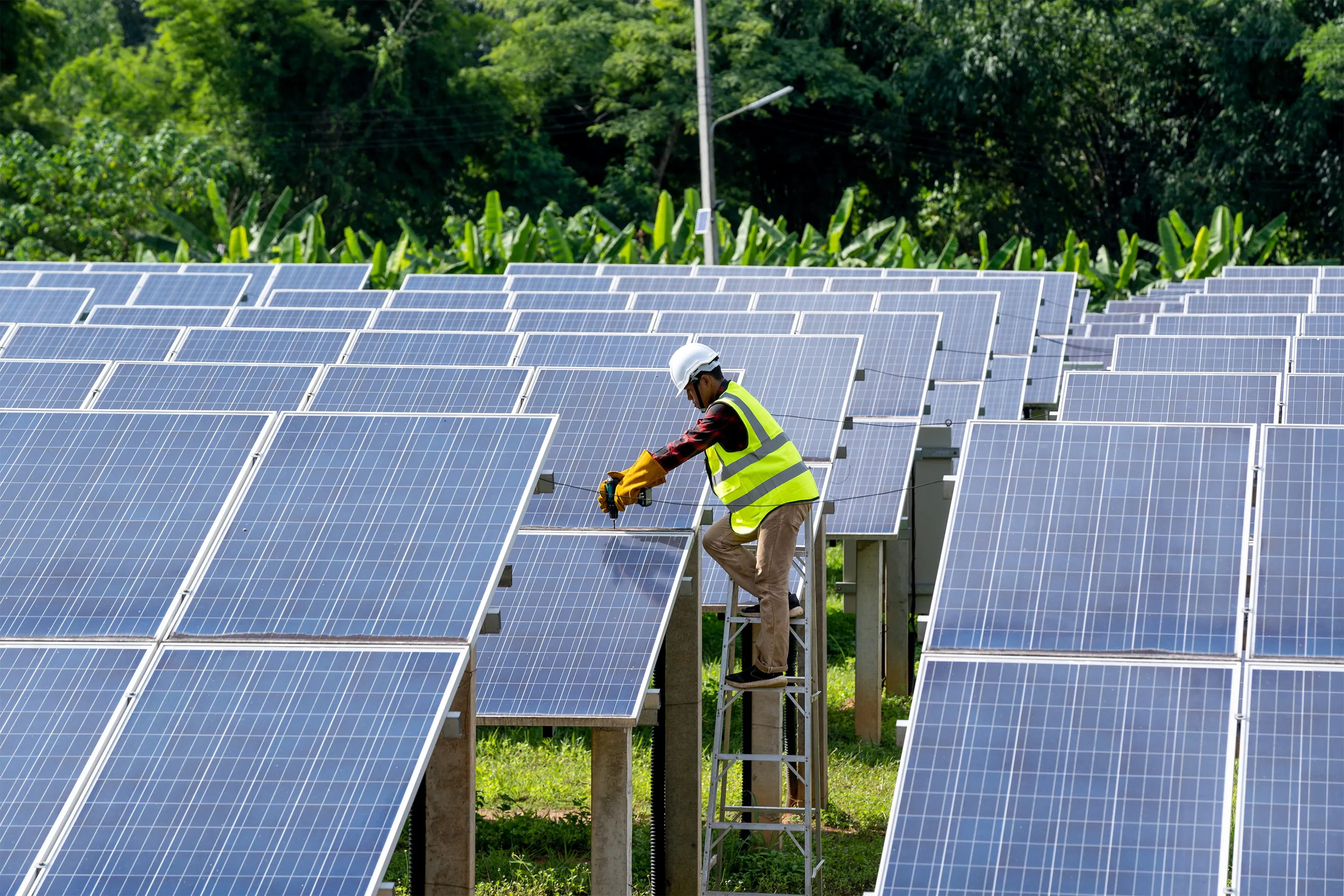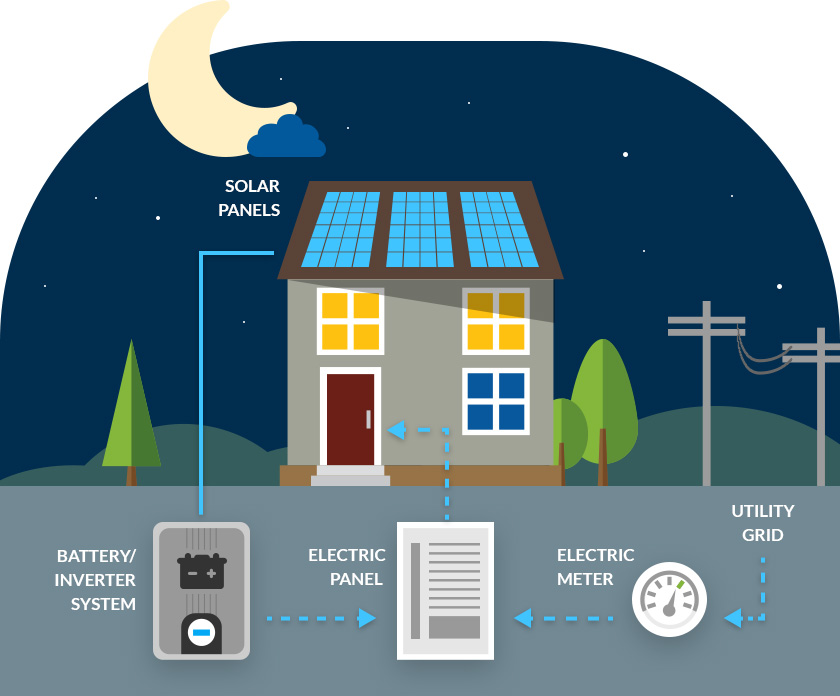All About Solar Panel Company
All About Solar Panel Company
Blog Article
Solar Panel Company Virginia: Lumina Solar Focuses On Offering Advanced Photovoltaic Solutions For Residences And Businesses
History and Establishing
Have you ever questioned how a solar panel business springs from a mere trigger of inspiration into a powerhouse of renewable resource? It typically starts with a vision-- one sustained by a blend of innovation, determination, and a pinch of serendipity. The journey of lots of solar companies mirrors the evolution of the technology itself: from large, inefficient panels to streamlined, high-efficiency marvels harnessing the sun's bounty.
The Early Days
In the late 20th century, when solar energy was still a specific niche principle, leaders planted seeds for what would become a global movement. Think of a small workshop filled with curious engineers, relentlessly experimenting with photovoltaic cells. Their enthusiasm was palpable, typically driven by a desire to fight climate modification and minimize dependence on fossil fuels.
One such anecdote has to do with a founder who, inspired by a camping trip, understood that even in remote locations, the sun could power essential devices. This basic observation triggered a business's objective to democratize access to clean energy.
Establishing Principles

- Innovation: Continuously pushing the boundaries of solar technology to enhance efficiency and toughness.
- Sustainability: Devoting to environment-friendly production and reducing carbon footprints.
- Ease of access: Making renewable resource options cost effective and useful for everyday users.
Milestones in Growth
| Year | Key Event |
|---|---|
| 1985 | Company founded in a small garage, focusing on research study and development. |
| 1995 | Commercial solar panel product launched, acquiring regional attention. |
| 2005 | Broadened to worldwide markets, accepting worldwide eco-friendly energy goals. |
| 2015 | Introduced advanced solar panel technology with enhanced energy conversion. |
Isn't it remarkable how these incremental actions, frequently neglected, form the energy landscape today? The solar panel company story is not almost innovation; it's about a ruthless mission for a brighter, cleaner future.

Innovations in Photovoltaic Panel Technologies
Ever observed how some photovoltaic panels shine brighter and last longer? It's not magic; it's the science of photovoltaic effectiveness. Modern photovoltaic panel business invest heavily in technologies like bifacial cells, which capture sunlight from both sides, increasing energy harvest without expanding roof area. Have you ever questioned why some panels carry out much better on cloudy days? That is because of advances in thin-film solar innovation, which thrives under diffused light conditions.
Product Variations Tailored to Distinct Requirements
One size never ever fits all. Photovoltaic panel suppliers now offer:
- Monocrystalline panels for maximum effectiveness and streamlined looks, suitable for space-constrained roofs.
- Polycrystalline panels, which provide an economical alternative without compromising excessive output.
- Building-integrated photovoltaics (BIPV), combining solar tech seamlessly into architectural aspects like windows and exteriors.
Selecting the ideal product isn't just about in advance expense; it has to do with matching your environment, energy objectives, and long-term savings. Homes shaded by trees need panels that stand out in low-light situations, something lots of neglect until energy bills climb unexpectedly.
Technical Tips for Ideal Choice
- Evaluate the temperature level coefficient-- lower values indicate panels lose less performance on hot days.
- Search for panels with improved anti-reflective finishes to make the most of light absorption.
- Think about the panel's guarantee not simply for problems, but for ensured power output over decades.
- Don't ignore the importance of the inverter technology combined with the panels; it can make or break your system's performance.
Beyond Panels: Emerging Trends
Think of photovoltaic panels that adjust their angle instantly to chase the sun-- tracking systems are ending up being more accessible, increasing yield significantly. Or solar tiles that mix invisibly into your roofline, transforming your home into a silent, self-sufficient power generator. These developments are improving what a photovoltaic panel business provides-- not simply products, but integrated energy services.
Market Presence and Global Operations
Ever question why some solar panel business appear to sprout up in every corner of the world while others hardly make a ripple? The difference lies not simply in technology but in mastering the art of browsing diverse markets. Broadening worldwide resembles planting seeds in different environments-- you need to comprehend each environment's unique conditions to thrive.
Take, for instance, the elaborate dance of logistics and supply chain management. Shipping panels halfway across the world isn't just about range; it has to do with timing, custom-mades, tariffs, and adapting to local need changes. A business with robust worldwide operations prepares for these variables, making sure panels get here on schedule without pumping up costs. This insight is no small feat and typically separates market leaders from fans.
Secret Techniques for Expanding Market Existence
- Localized manufacturing: Developing production hubs near target audience decreases shipping hold-ups and import intricacies.
- Strategic collaborations: Working together with local companies speeds up market penetration and develops trust.
- Adaptive item design: Customizing solar panel tech to weather, sun strength, and infrastructure subtleties enhances performance and acceptance.
What about the human aspect? Solar panel business operating internationally must fix up cultural differences and regulative nuances without forgeting their core mission. What works in a sun-drenched desert may falter in a damp seaside region. In some cases, the most innovative solution is just listening-- absorbing local insights to improve innovation and method.
Professionals typically advise a phased rollout instead of a shotgun expansion. Why run the risk of overextension when determined growth builds sustainable momentum? Scaling carefully suggests balancing ambition with operational resilience - Commercial Solar Panels Virginia. After all, in the race for sustainable energy dominance, perseverance can be as important as speed
Environmental Impact and Sustainability Practices
When photovoltaic panels first emerged, many presumed they carried zero environmental baggage. However, the truth is more nuanced. The production of photovoltaic cells involves unusual earth metals and energy-intensive procedures, which can leave a substantial carbon footprint before the panels even reach roofs. The real ecological cost depends greatly on the sustainability practices used by the solar panel company throughout the lifecycle of their items.
How typically do we stop briefly to consider what occurs to photovoltaic panels at the end of their beneficial life? Unlike batteries or electronic devices, photovoltaic panels can last 25-30 years, however disposal and recycling paths stay underdeveloped in numerous areas. A company dedicated to minimizing environmental damage will have a robust prepare for recycling photovoltaic materials, restoring valuable silicon, glass, and metals to avoid landfill build-up.
Secret Sustainability Strategies
- Utilizing low-impact production techniques that reduce water and energy usage.
- Carrying out closed-loop systems to recycle production waste back into brand-new panels.
- Engaging in transparent supply chain audits to guarantee ethical sourcing of basic materials.
- Designing panels for much easier disassembly to help future recycling efforts.
It's worth noting that some solar business have pioneered innovative approaches, such as integrating eco-friendly elements or using less harmful chemicals throughout fabrication. This not only reduces environmental strain however also sets a precedent for the industry. The concern stays: can the solar market genuinely pivot towards a circular economy design without sacrificing performance or cost?
Specialist Tips for Examining Sustainability
- Inquire about the company's commitment to carbon-neutral manufacturing and whether they balance out emissions.
- Investigate if they partner with certified recycling centers devoted to photovoltaic panel waste.
- Try to find openness reports detailing ecological effects and sustainability goals.
- Think about the durability and warranty of panels as an indirect measure of resource efficiency.
In the end, selecting solar energy must suggest more than just slashing electricity bills; it's about supporting a future where energy is harvested responsibly and waste is attentively handled. Solar panel companies that welcome this philosophy not read more just brighten homes however also cast a brighter light on sustainable innovation.
Report this page